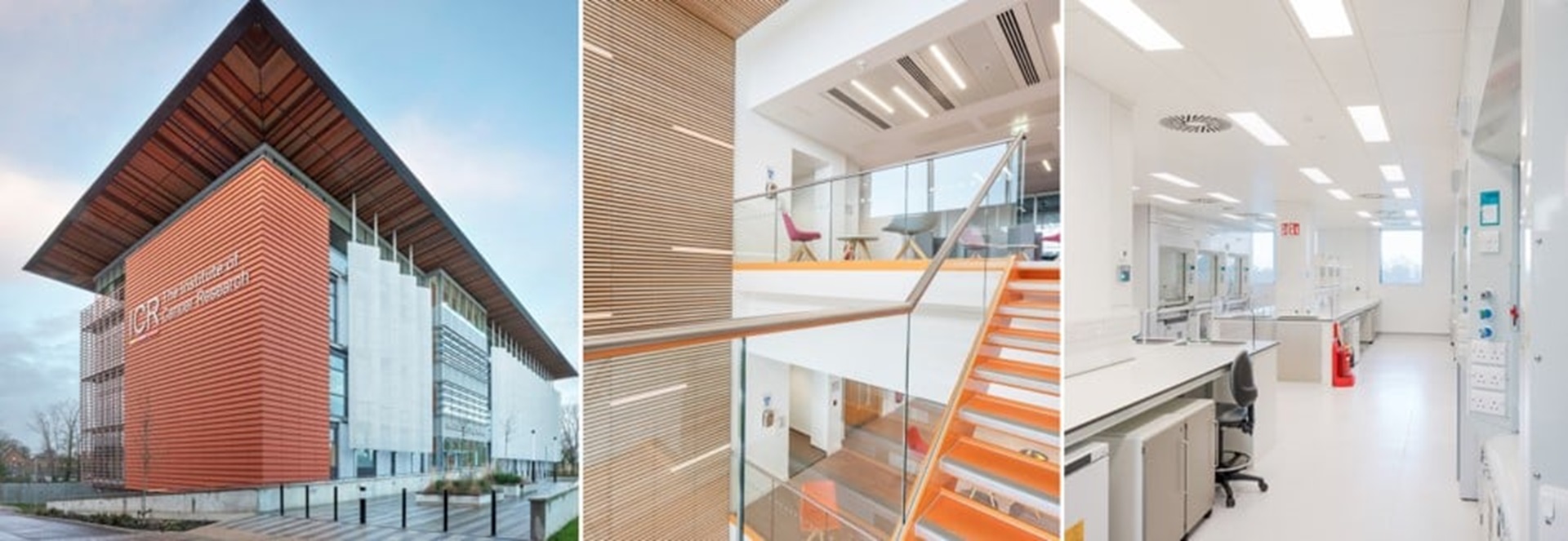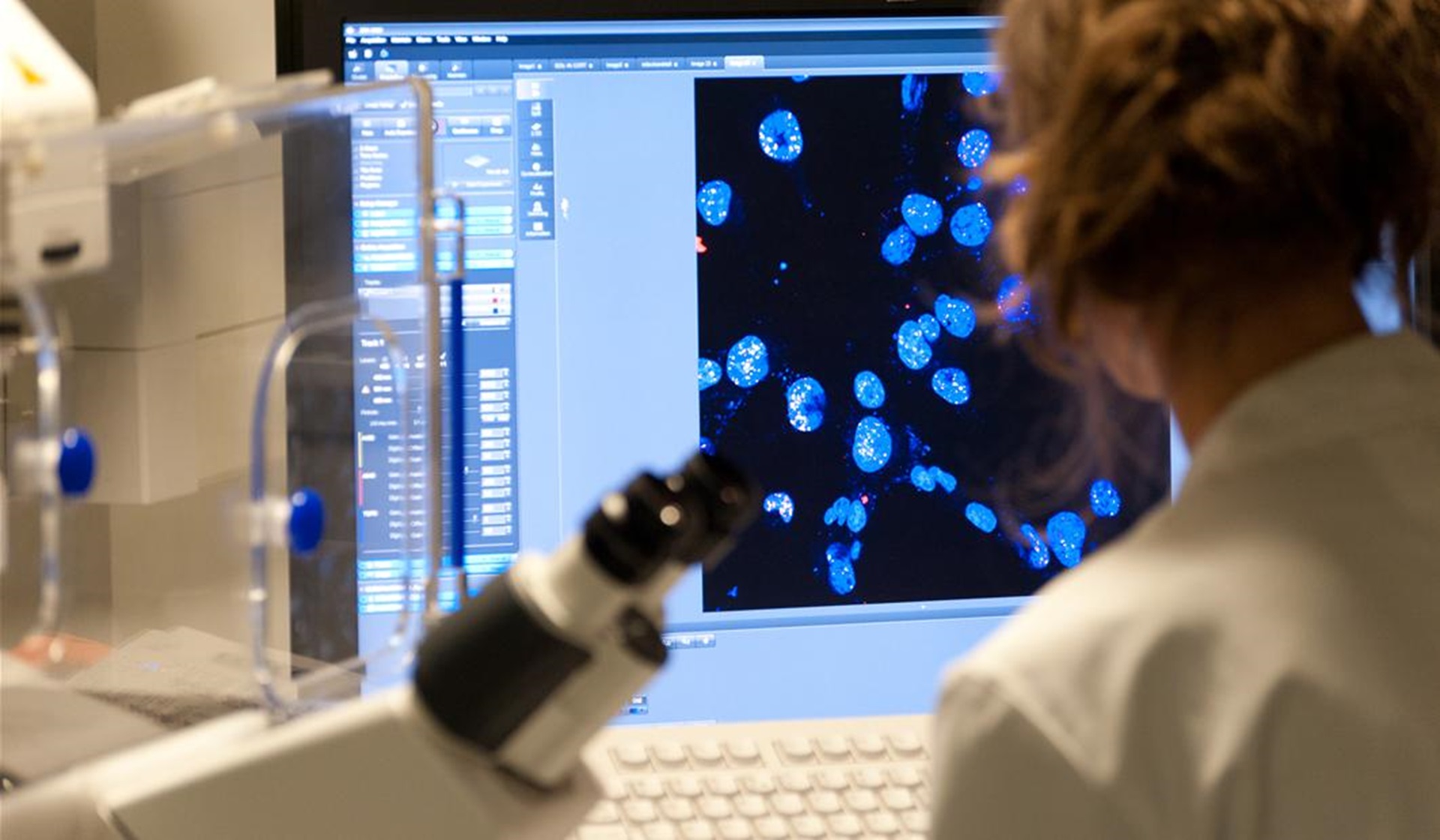The Centre for Protein Degradation
The Centre for Protein Degradation is a centre of excellence coordinating all aspects of molecularly driven protein degradation, from concept to clinic, both within and beyond the ICR.
Targeted Protein Degradation (TPD) is a promising drug discovery paradigm which exploits the cell’s own protein disposal system to eliminate cancer-causing proteins.
The mission of the Centre for Protein Degradation (CPD) is to advance and deploy TPD approaches to study cancer biology and develop breakthrough cancer treatments for patient benefit.
The highly collaborative Centre is linked with the Centre for Cancer Drug Discovery and is designed to leverage broad expertise and capabilities at the ICR and our hospital partner, The Royal Marsden, to develop protein degraders from initial concept to clinic, both within and beyond the ICR.
Our scientists have been amongst the pioneers in the field of Protein Degradation.
The CPD emerged out of years of research by our scientists in the Division of Cancer Therapeutics who have explored targeted degradation as therapeutic modality since 2016.
This research led to the discovery of the precursor candidate of the GSPT1 degrader MRT-2359 and a spin-out company, Monte Rosa Therapeutics, who are currently progressing this new drug candidate in Phase I/II clinical trials.
Following the initiation as an academic centre of excellence in 2022, the CPD received a £9 million philanthropic donation by David and Ruth Hill to fund and accelerate its expanding research.
How we research at this centre
The Centre for Protein Degradation was developed out of years of degraders research by scientists who explored targeted protein degradation (TPD) as a therapeutic modality.
Our extensive structural biology and screening capabilities are utilised to design and identify promising leads for developing novel PROTAC and MGD platforms.
The Centre for Protein Degradation has two main objectives:
- Apply TPD for cancer patient benefit, and
- Discover and develop new TPD approaches.
To address these objectives, the CPD is focusing on three main research themes:
- PROTACs
- Molecular Glues
- Exploring E3 ligases.
1. PROTACs
PROteolysis Targeting Chimeras (PROTACs) are heterobifunctional molecules rationally designed to bring the desired target protein in close proximity to an E3 ubiquitin ligase, and consequently induce its ubiquitination and proteasomal degradation. A typical PROTAC consists of three distinct structural motifs, with one binding to the protein of interest, another binding to an E3 ligase complex (a warhead), and a linker tethering them together.
We have put in place and are constantly developing key enabling tools such as an extensive library of linker-warhead intermediates to enable rapid PROTAC synthesis and SAR exploration, and E3-ligase engagement assays to study ternary complex formation.
The Centre's portfolio handles several ongoing PROTAC projects; if you are interested in collaborating with us, please contact us.
2. Molecular glue degraders
Molecular Glue Degraders (MGDs) bind to E3 ubiquitin ligase altering its substrate specificity, which results in the recruitment, ubiquitination, and subsequent proteasomal degradation of proteins not normally targeted by the E3 ligase, termed neosubstrates.
The ICR has been at the forefront of this field since 2016, with our research leading to the development of the spin-out company, Monte Rosa Therapeutics, who are currently conducting a Phase I/II clinical trial of MRT-2359, a potent and selective GSPT1-directed molecular glue degrader.
A second generation cereblon (CRBN) directing library has been developed, and is continuously being diversified and expanded using the state-of-the-art computational and structural biology design methods. The library is screened in phenotypic and target-defined biochemical and cell-based assays to discover novel MGDs and neosubstrates.
3. Enabling novel E3 ubiquitin ligases
While there around 600 E3 ligases in the human genome, only a few of them are currently being utilised in TPD drug discovery, with most attention placed on Von–Hippel Lindau (VHL) and cereblon (CRBN). Enabling alternative E3 ligases for TPD is an important aspect of our research efforts since it would expand the range of proteins that can be targeted and the range of cells or tissues in which the degrader would be effective, thereby shifting the sensitivity or resistance profile. The CPD employs advanced computational methods to identify druggable E3 ligases that are cancer drivers and/or differentially expressed in tumours.
With a track record of cancer drug discovery, our members have a broad range of expertise and diverse backgrounds. The Centre for Protein Degradation also draws expertise from existing drug discovery teams within the ICR's Centre for Cancer Drug Discovery.
Director

Professor Zoran Rankovic, Director and Group Leader
Professor Zoran Rankovic joined ICR as Director of the Centre for Protein Degradation and Leader of the Targeted Protein Degradation Team in 2024. He is an internationally recognised expert in targeted protein degradation (TPD), medicinal chemistry and drug discovery. He has made several notable contributions to the field of TPD including the development of alternative cereblon warheads with improved properties for PROTAC design and orally bioavailable potent, selective degraders of CK1a and GSPT1. During his time in industry he directed teams that delivered multiple clinical candidates over a range of therapeutic areas.
Lead Chemist
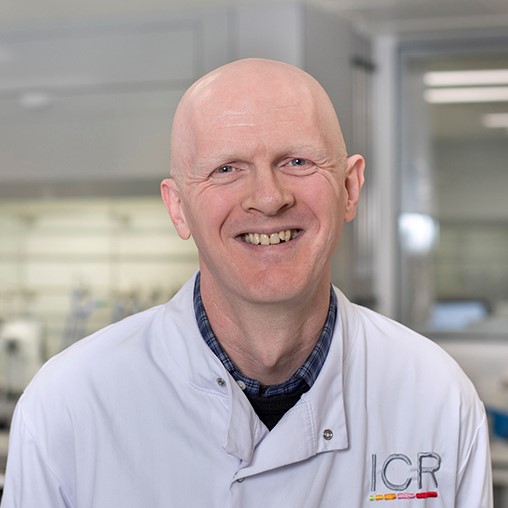
Dr John Caldwell, Senior Staff Scientist
Over the years, John has strongly contributed to the success of the Centre for Cancer Drug Discovery (previously Cancer Therapeutics Unit). John joined the ICR as a post-doctoral research fellow in 2003 following a synthetic chemistry PhD at the University of Strathclyde and a post-doc at Imperial College on natural products synthesis. John has extensive experience in structure based drug design, currently being used within the field of protein degradation. John’s work at the ICR has led to the discovery of several clinical candidates, such as capivasertib and more recently the GSPT1 degrader MRT-2359. From inception, John contributed a leading role in the generation of molecular glue libraries that led to the creation of Monte Rosa Therapeutics. John is also a founding member of the Centre for Protein Degradation and has driven the design and synthesis of glue and PROTAC type degraders. His work and contribution helped to attract £9M funding into the Centre.
Lead Biologist
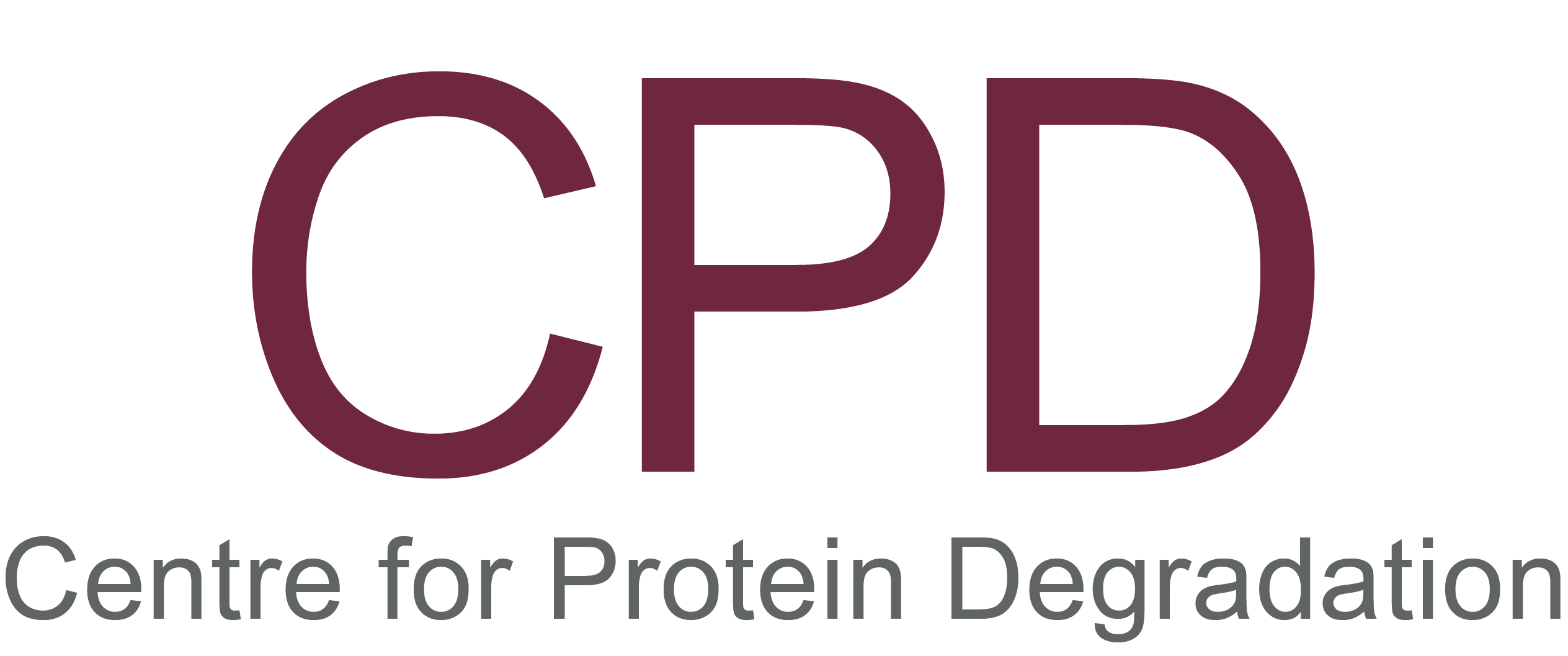
Staff Scientist
Recruitment in progress
Project Manager

Dr Fiona Dziegiel, Scientific Project Manager
Fiona completed her PhD at the ICR in 2022 investigating the regulation of cancer-associated antiviral proteins in bladder cancer and their contribution to tumour heterogeneity and drug resistance under the supervision of Dr Olivia Rossanese. After completing her PhD she worked in a clinical research organisation managing day-to-day operations of Phase I – III oncology trials, where she rapidly developed her skills in project management. She has a robust understanding of the entire drug development process, from target identification to clinical trial, and returned to the ICR in 2023 to provide scientific and operational support for projects within the Centre for Protein Degradation and Centre for Cancer Drug Discovery.
Medicinal Chemistry
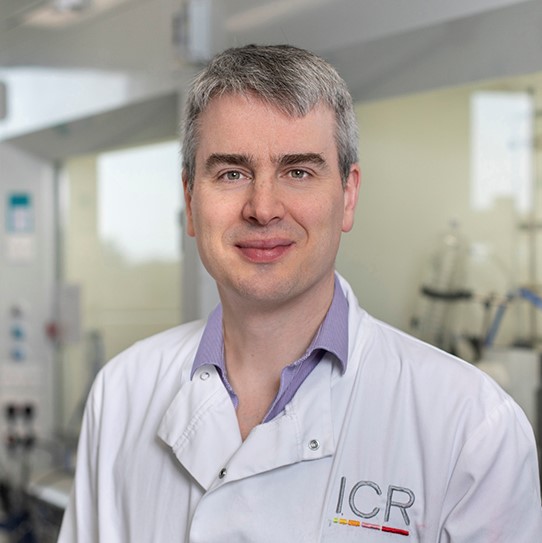
Dr Justin Warne, Senior Scientific Officer
Justin joined the ICR in 2018, with a significant experience of design and synthesis of PROTAC molecules on a variety of disease areas, having previously worked as a synthetic medicinal chemist at Evotec, Arrow Therapeutics and UCL. Justin is a co-author of 5 publications and 5 patents, and worked on the forerunner to the Centre, the CRBN project in collaboration with Monte Rosa Therapeutics, aiding in the development of a large molecular glue library.
Medicinal Chemistry
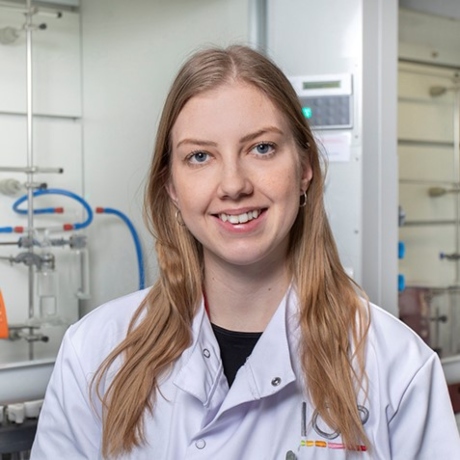
Dr Ellie Stammers, Postdoctoral Training Fellow
Ellie joined the ICR in January 2023. She completed her undergraduate degree at the University of York, including a year working in industry at Hoffmann-La Roche in Basel, Switzerland. Ellie then went on to obtain her PhD from the University of Bristol under the supervision of Professor Jonathan Clayden and Dr Alastair Lennox, where she developed an electrochemical methodology for biaryl synthesis. Her work at the ICR involves the development of novel E3 ligase mediated degraders.
Biology
Marc Leiro, Scientific Officer
Marc joined the ICR in February 2024. He completed his degree in Molecular and Cellular Biology at the University of Barcelona, followed by a specialised master’s in Biomedical Research at Pompeu Fabra University. Currently, Marc works as a Scientific Officer at Charlotte Pawlyn’s Lab in the Myeloma Biology and Therapeutics Team which focusses on identifying therapeutic targets to improve outcomes for patients with immunomodulatory drug resistant and high-risk myeloma. He supports the biology aspects of CPD projects, screening and profiling degraders.
Assay development and biophysics
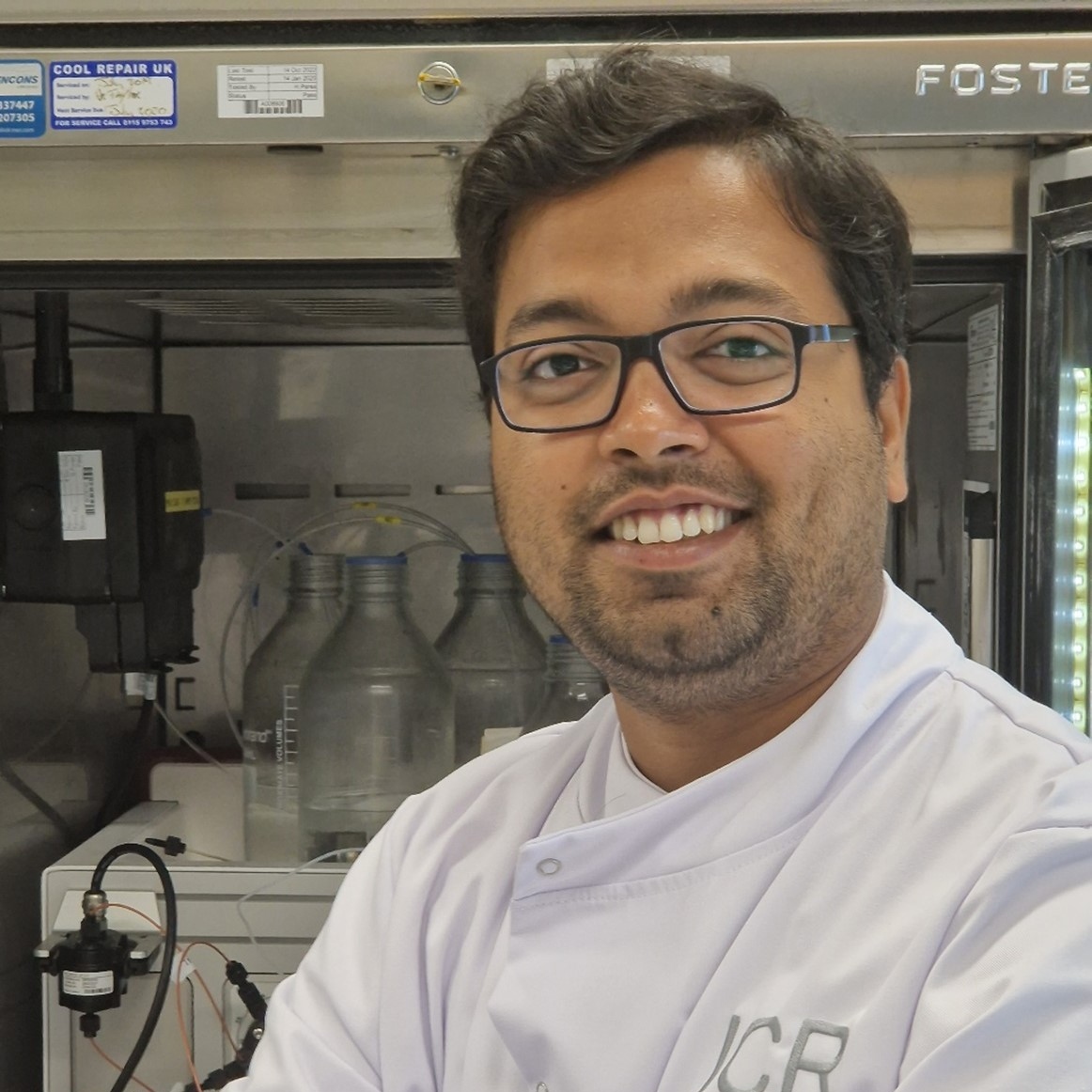
Nihar Ranjan Prusty, Higher Scientific Officer
Nihar obtained a PhD in Structural Biology at the Magnetic Resonance Center (CERM), University of Florence, Italy, where his research was focussed on Fe-S protein biogenesis in human cytosol. Then he went on to pursue Postdoctoral research at the University of Potsdam, Germany, where he mainly worked with a radical-SAM enzyme, responsible for Mo cofactor biosynthesis, and established Fe-S cluster insertion pathways to the enzyme. He has ample experience in expression and purification of metalloproteins in the E. coli system and their characterisation by various spectroscopic techniques. He joined the ICR in June 2023 as a Higher Scientific Officer and is currently working on projects under the CPD for protein production, purification and biophysical characterisation.
Crystallography
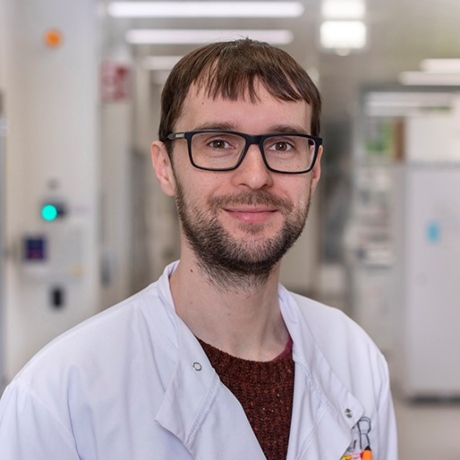
Dr Marc Cabry, Senior Scientific Officer
Marc joined the Hit Discovery and Structural Design team at the ICR in January 2018, having completed his PhD in Mechanistic Biology at the University of York in 2017. Marc is involved in the structural characterisation of ternary complexes for several protein degradation projects within the Centre.
Marc's LinkedIn profile | ORCiD
Cryo-EM

Dr Stephen Hallett, Senior Scientific Officer
Stephen is an expert in the field of cryo-Electron Microscopy and joined the Centre in 2022, after a PhD in the Northern Institute of Cancer Research at Newcastle University and a post-doc at the University of Sussex, in the Genome Damage and Stability Centre. Stephen is the first author of 3 publications and is involved in the structural characterization by cryo-EM of ternary complexes for several protein degradation projects.
In silico Chemistry

Dr Natalia Serrano Aparicio, Postdoctoral Training Fellow
Natalia joined the in silico Chemistry team at the ICR in 2022, having completed her PhD at the University Jaume I, in Castellon de la Plana (Spain) in Theoretical Chemistry and Computational Modelling. Natalia is an author of 6 publications and is involved in driving the in silico chemistry pipeline for protein-protein docking and PROTAC design in the Centre.

Dr Charlotte Pawlyn, Group Leader
Charlotte Pawlyn is a CRUK Clinician Scientist at The Institute of Cancer Research and a Haematology Consultant at The Royal Marsden Hospital NHS Foundation Trust. Charlotte leads the Myeloma Biology and Therapeutics Team at The Institute of Cancer Research which focusses on identifying therapeutic targets to improve outcomes for patients with immunomodulatory drug (IMiDs) resistant and high-risk myeloma. In addition to her laboratory studies Charlotte is actively involved in the Trial Management Groups of several clinical trials as part of the UK Myeloma Research Alliance including the large national frontline studies, Myeloma XI and Myeloma XIV. She utilises her broad cancer biology and degrader experience to support biology aspects of projects within the CPD.

Yann-Vaï Le Bihan, Staff Scientist
Yann-Vaï is a structural biologist with expertise in X-ray crystallography applied to drug design, as well as protein biochemistry and biophysics. Yann-Vaï completed a PhD in molecular biophysics at the university of Orléans (France) in 2009, followed by two post-docs at the CEA (Saclay, France) and IBS/ESRF (Grenoble, France). He joined the ICR as a post-doctoral researcher within the Hit Discovery and Structural Design (HDSD) team in 2014 and was since promoted to a Staff Scientist position to oversee the protein production, biophysics and structural biology activities of the HDSD team within the Centre for Cancer Drug Discovery. Yann-Vaï has been actively involved in the targeted protein degradation work undertaken at ICR since 2016, which led to the creation of the spin-out company Monte Rosa Therapeutics in 2019 and of the Centre for Protein Degradation in 2022.
Yann-Vaï's LinkedIn profile | ORCiD

Craig McAndrew, Senior Scientific Officer
Craig graduated with a PhD in 1996 at the Marie Curie Research Institute (Oxted) supervised by Collin Goding. He then did a Postdoc at the Randall Institute (KCL) with Louis Mahdevan, and he joined the ICR (Centre for Cancer Therapeutics) in 1999 as a Postdoc, working on CDK4/6 with Michelle Garratt. In 2003, Craig became responsible for producing/purifying recombinant proteins for the centre. Craig has expertise in cloning & protein production and knowledge in biophysics.

Olivier Pierrat, Senior Scientific Officer
Olivier joined the Hit Discovery and Structural Design team at the ICR in February 2014, after his postdoctoral research experiences at the University of Reading (cardiovascular), MRC-LMB (with MCT-T/LifeArc), John Innes centre and Texas A&M University. Profiting of his experience acquired at the ICR, Olivier’s work concentrates on developing assays measuring in cell target engagement of PROTAC and molecular glue molecules using the NanoBRET technology (Promega UK Ltd) and immunofluorescence. This includes E3 ligase target engagement, ternary complex formation and protein degradation in the cellular context.
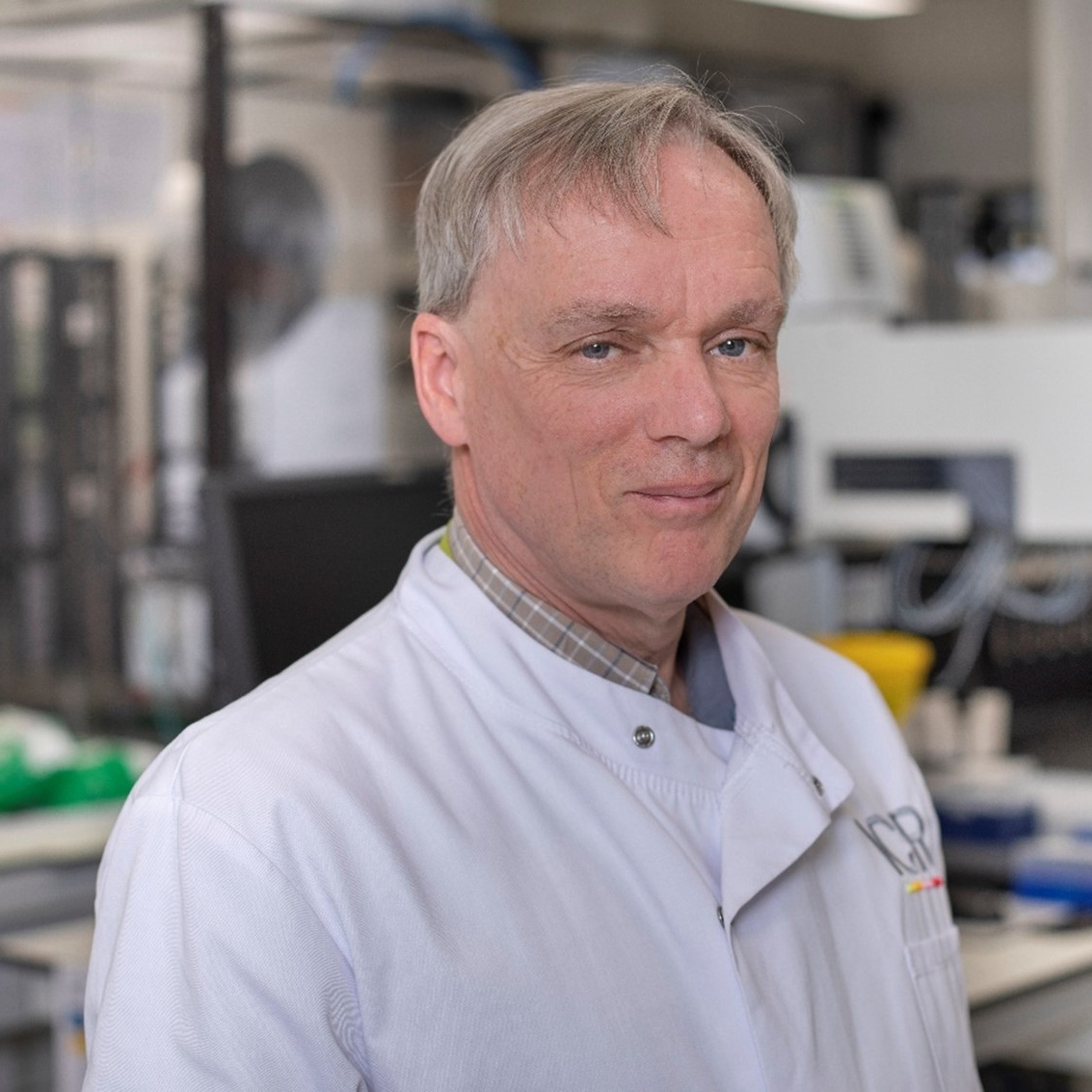
Mark Stubbs, Higher Scientific Officer
Mark joined the Hit Discovery and Structural Design team at the ICR following a BA Honours in Biochemistry at Oxford and a PhD in Southampton. Mark is involved in the compound management, liquid handling and assay development for the Centre for Protein Degradation.
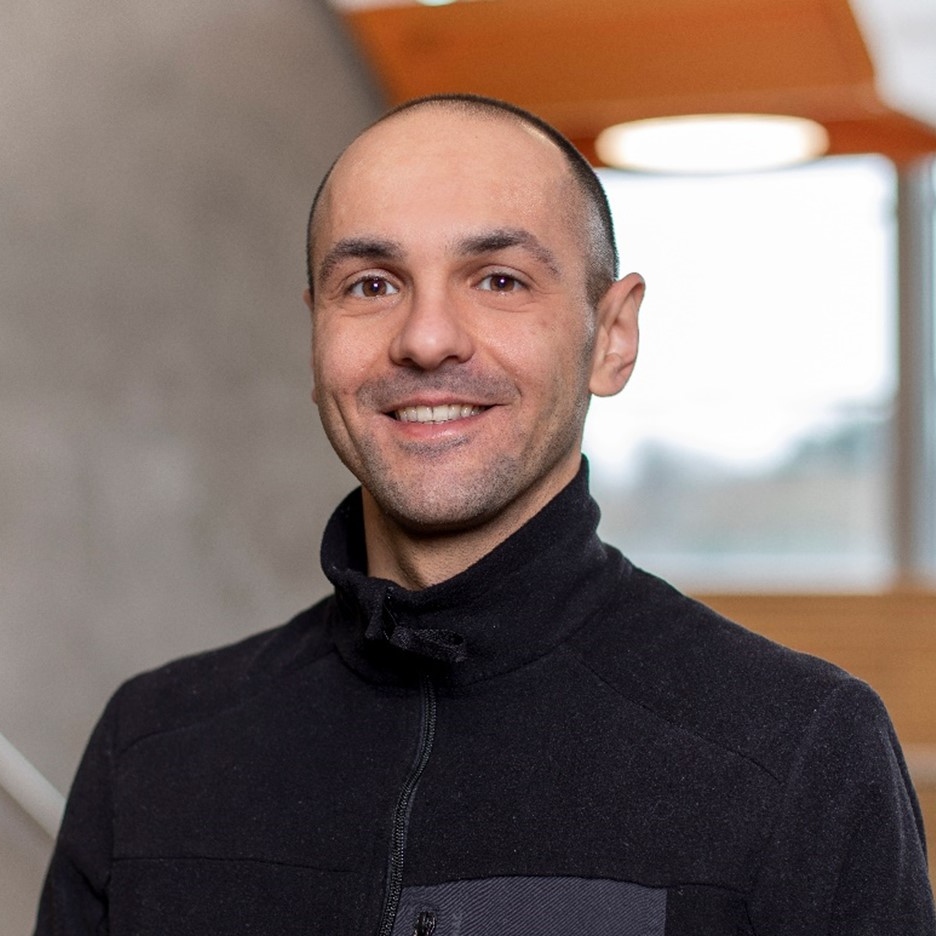
Andrea Scarpino, Principal Computational Scientist
Andrea joined the ICR in July 2021 as a Postdoctoral Training Fellow. He previously received a Marie Skłodowska-Curie fellowship to work in the Medicinal Chemistry Team at the Research Centre for Natural Sciences in Budapest, where he completed his PhD focusing on the development of covalent docking protocols for drug discovery. Andrea provides computational chemistry support to several drug discovery projects at the ICR and is currently leading the research activities of the In Silico Medicinal Chemistry team. Andrea also contributes to research projects in the Centre for Protein Degradation by applying computational methods to aid the design and optimisation of protein degraders.
Andrea's LinkedIn profile | ORCiD
-mitsopoulos.jpg?sfvrsn=59c4b171_1)
Konstantinos (Costas) Mitsopoulos, Staff Scientist – Bioinformatics
Costas joined the ICR as a Bioinformatics staff scientist in 2007, transitioning from the Ludwig Institute for Cancer Reasearch (post-doctoral fellow in Computational Biology), and following a Bioinformatics MRes (Birkbeck), four years of post-doctoral experience in cancer cell biology (KCL) and a PhD in Membrane Protein Assembly (Sussex University). He has been working in the CCDD (formerly CTU) since 2013, providing bioinformatics support to several drug discovery projects. He is currently leading the research activities in the Computational Biology and Chemogenomics Team. His role in the CPD encompasses structural bioinformatics-driven discovery of degron motifs for molecular glue target candidates, target ligandability assessments based on 3D structures, available chemical matter and patient profiles and proteomics-based hit discovery and profiling for molecular glues and PROTACs.
Work with us
At the Centre for Protein Degradation, we are committed to collaborating on all aspects of degrader research.
A strong focus for our collaborative projects is the joint discovery of small molecule degraders that enable validation of novel therapeutic hypotheses in preclinical models and ultimately, enter clinical trials with the goal to improve the lives of people with cancer .
We are also interested in collaborations focusing on the development and validation of novel TPD technologies, e.g. design, screening and evaluation of degrader molecules and E3 ligases in silico, in vitro and in vivo.
Express your interest
We are keen to discuss proposals for all areas of TPD research! If you are interested in working with us, please get in touch.
Contact us
To contact us, please email: [email protected]
Where to find us
Centre for Protein Degradation
Centre for Cancer Drug Discovery
The Institute of Cancer Research
15 Cotswold Road
SM2 5NG Sutton, London
United Kingdom
‘Determination of Ligand-Binding Affinity (Kd) Using Transverse Relaxation Rate (R2) in the Ligand-Observed 1H NMR Experiment and Applications to Fragment-Based Drug Discovery’ – Manjuan Liu, Amin Mirza, P. Craig McAndrew, Arjun Thapaliya, Olivier A. Pierrat, Mark Stubbs, Tamas Hahner, Nicola E. A. Chessum, Paolo Innocenti, John Caldwell, Matthew D. Cheeseman, Benjamin R. Bellenie, Rob L. M. van Montfort, Gary K. Newton, Rosemary Burke, Ian Collins & Swen Hoelder. Journal of Medicinal Chemistry, 2023. DOI: 10.1021/acs.jmedchem.3c00758.
‘A degron blocking strategy towards improved CRL4CRBN recruiting PROTAC selectivity’ – Habib Bouguenina, Andrea Scarpino, Jack O'Hanlon, Justin Warne, Hannah Z. Wang, Laura Chan Wah Hak, Amine Sadok, P. Craig McAndrew, Mark Stubbs, Olivier A. Pierrat, Tamas Hahner, Marc P. Cabry, Yann-Vai Le Bihan, Costas Mitsopoulos, Fernando Jr. Sialana, Theodoros I. Roumeliotis, Rosemary Burke, Rob L.M. Van Montfort, Jyoti Choudhary, Rajesh Chopra, John J. Caldwell & Ian Collins – ChemBioChem, 2023, e202300351.
‘iTAG an optimized IMiD-induced degron for targeted protein degradation in human and murine cells’ – Habib Bouguenina, Stephanos Nicolaou, Yann-Vaï Le Bihan, Elizabeth A. Bowling, Cheyenne Calderon, John J. Caldwell, Brinley Harrington, Angela Hayes, P. Craig McAndrew, Costas Mitsopoulos, Fernando Jr. Sialana, Andrea Scarpino, Mark Stubbs, Arjun Thapaliya, Siddhartha Tyagi, Hannah Z. Wang, Francesca Wood, Rosemary Burke, Florence Raynaud, Jyoti Choudhary, Rob L.M. van Montfort, Amine Sadok, Thomas F. Westbrook, Ian Collins & Rajesh Chopra – iScience, 2023, 26(7), 107059.
‘Improved Binding Affinity and Pharmacokinetics Enable Sustained Degradation of BCL6 In Vivo’ – Rosemary Huckvale, Alice C. Harnden, Kwai-Ming J. Cheung, Olivier A. Pierrat, Rachel Talbot, Gary M. Box, Alan T. Henley, Alexis K. de Haven Brandon, Albert E. Hallsworth, Michael D. Bright, Hafize Aysin Akpinar, Daniel S. J. Miller, Dalia Tarantino, Sharon Gowan, Angela Hayes, Emma A. Gunnell, Alfie Brennan, Owen A. Davis, Louise D. Johnson, Selby de Klerk, Craig McAndrew, Yann-Vaï Le Bihan, Mirco Meniconi, Rosemary Burke, Vladimir Kirkin, Rob L. M. van Montfort, Florence I. Raynaud, Olivia W. Rossanese, Benjamin R. Bellenie & Swen Hoelder – Journal of Medicinal Chemistry, 2022, 65(12), 8191-8207.
‘Encoding BRAF inhibitor functions in protein degraders’ – Daniel S. J. Miller, Sabine A. Voell, Izidor Sosic, Matic Proj, Olivia W. Rossanese, Gregor Schnakenburg, Michael Gutschow, Ian Collins & Christian Steinebach - RSC Medicinal Chemistry, 2022, 13, 731-736.
‘Discovering cell-active BCL6 inhibitors: effectively combining biochemical HTS with multiple biophysical techniques, X-ray crystallography and cell-based assays’ - Olivier A. Pierrat, Manjuan Liu, Gavin W. Collie, Kartika Shetty, Matthew J. Rodrigues, Yann-Vaï Le Bihan, Emma A. Gunnell, P. Craig McAndrew, Mark Stubbs, Martin G. Rowlands, Norhakim Yahya, Erald Shehu, Rachel Talbot, Lisa Pickard, Benjamin R. Bellenie, Kwai-Ming J. Cheung, Ludovic Drouin, Paolo Innocenti, Hannah Woodward, Owen A. Davis, Matthew G. Lloyd, Ana Varela, Rosemary Huckvale, Fabio Broccatelli, Michael Carter, David Galiwango, Angela Hayes, Florence I. Raynaud, Christopher Bryant, Steven Whittaker, Olivia W. Rossanese, Swen Hoelder, Rosemary Burke & Rob L. M. van Montfort – Scientific Reports, 2022, 12, article number 18633.
‘Phenotypic screening with target identification and validation in the discovery and development of E3 ligase modulators’ – Nil Ege, Habib Bouguenina, Marianthi Tatari & Rajesh Chopra – Cell Chemical Biology, 2021, 28(3), 283-299.
‘A critical evaluation of the approaches to targeted protein degradation for drug discovery’ – Rajesh Chopra, Amine Sadok & Ian Collins – Drug Discovery Today: Technologies, 2019, 31, 5-13.
‘Chemical approaches to targeted protein degradation through modulation of the ubiquitin-proteasome pathway’ – Ian Collins, Hannah Wang, John J. Caldwell & Rajesh Chopra – Biochemical Journal, 2017, 474(7), 1127-1147.
'Small-Molecule Approaches to Targeted Protein Degradation' – Tyler B. Faust, Katherine A. Donovan, Hong Yue, Philip P. Chamberlain, and Eric S. Fischer. Annual Review of Cancer Biology, Vol. 5:181-201 (Volume publication date March 2021)
'A beginner’s guide to PROTACs and targeted protein degradation' – Alessio Ciulli; Nicole Trainor. Biochem (Lond) (2021) 43 (5): 74–79.
'Targeted protein degradation: expanding the toolbox' – Matthieu Schapira, Matthew F. Calabrese, Alex N. Bullock & Craig M. Crews. Nature Reviews Drug Discovery volume 18, pages 949–963 (2019)
'PROTAC targeted protein degraders: the past is prologue' – Miklós Békés, David R. Langley & Craig M. Crews. Nature Reviews Drug Discovery volume 21, pages 181–200 (2022)
'Protein degraders enter the clinic — a new approach to cancer therapy' – Deborah Chirnomas, Keith R. Hornberger & Craig M. Crews. Nature Reviews Clinical Oncology (2023)
News and discoveries at this centre

New way to kill cancer cells could lead to longer lasting protection for people with breast cancer

ICR scientists seek new drugs to treat childhood cancer as part of global Cancer Grand Challenges team

